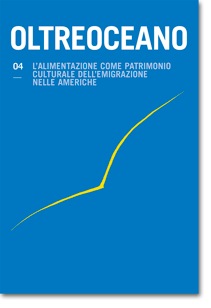Una poetica della convivialità: l’asado come leitmotiv nella narrativa di Juan José Saer
Keywords:
asado, Juan José Saer, identità nazionale argentinaAbstract
Il tema ricorrente dell’opera di Juan José Saer qui analizzato è quello dell’asado, nella sua doppia accezione di ricetta tipica rioplatense – un particolare taglio di carne bovina arrostita alla brace – e di momento conviviale di condivisione del pasto secondo una ritualità codificata socialmente in modo orizzontale, senza distinzioni di classe, e connotata culturalmente quale componente viva dell’identità nazionale argentina.
A Poetics of Conviviality: Asado as a Leitmotiv in Juan José Saer’s Writing
A recurring theme in the works of Juan José Saer analyzed herein is asado, both as a typical recipe of the Rio Plata region (a typical beef cut grilled on open fire) and as a convivial moment of food sharing according to a socially codified ritual that develops horizontally without class distinctions and is a vivid cultural feature of the Argentinian national identity.
Downloads
References
Anderson, B. (1996): Comunità immaginate. Origine e diffusione dei nazionalismi, 1983. M. d’Eramo (Prefazione). Roma: Manifestolibri.
Asuncion S. (1987): José. De sobremesa. Madrid: Cátedra.
Carpentier, A. (1974): Problemática de la actual novela latinoamericana. In A. Carpentier, Tientos y diferencias (pp. 7-35). LaHabana: Unión de escritores y artistas de Cuba.
Casertano, G. (Ed.), (2000): La struttura del dialogo platonico. Napoli: Loffredo.
Corral, R. (Ed.), ( 2007): Entre ficción y reflexión. Juan José Saer y Ricardo Piglia. México DF: El Colegio de México.
Gramuglio, M. T. (2004): El lugar de Juan José Saer. In M. T Gramuglio, Ficciones argentinas. Antología de lecturascríticas (pp. 327-366). Buenos Aires: Norma.
Ingenschay, D. (2007): Festines neobarrocos: el menú literario entre el exceso y el populismo (José Lezama, Laura Esquivel, Juan José Saer). Revista de filología románica, Anejo V, pp. 305-321.
Kristeva, J. (2006): Les pouvoirs de l’horreur. Essai sur l’abjection. París: Seuil.
Lévi-Strauss, C. (1968): Mythologiques, III. L’origine des manières de table. Paris: Plon.
Marquis de Cussy (1855): L’Art culinaire. Les classiques de la table, I. J. Améro (Ed.). Paris: Librairie de Firmin Didot Frères, 1.
Merleau-Ponty, M. (1945): Phénoménologie de la perception. Paris: Gallimard.
Premat, J. (2002): La dicha de saturno. Escritura y melancolía en la obra de Juan José Saer. Buenos Aires: Beatriz Viterbo.
Riera, G. (1996): La ficción de Saer: ¿Una antropología especulativa? (Una lectura de El entenado). MLN, 111, pp. 368-390.
Saer, J. J. (1983): El entenado. Buenos Aires: Folios.
Saer, J. J. (1988): La ocasión. Buenos Aires: Destino.
Saer, J. J. (1992): El limonero real. Buenos Aires: Centro Editor de América Latina.
Saer, J. J. (1994): El río sin orillas. Buenos Aires: Alianza.
Saer, J. J. (2000): Nadie, nada, nunca. Buenos Aires: Planeta.
Saer, J. J. (2001): Cuentos completos, 1957-2000. Buenos Aires: Seix Barral.
Saer, J. J. (2001): Al campo. In J. J. Saer, Cuentos completos 1957-2000 (pp. 464-480). Buenos Aires: Seix Barral.
Saer, J. J. (2001): Algo se aproxima. In J. J. Saer, Cuentos completos 1957-2000 (pp. 498-536). Buenos Aires: Seix Barral.
Saer, J. J. (2001): En la zona. In J. J. Saer, Cuentos completos 1957-2000 (pp. 419-536.). Buenos Aires: Seix Barral.
Saer, J. J. (2004): El concepto de ficción. Buenos Aires: Seix Barral.
Saer, J. J. (2005): La grande. Buenos Aires: Seix Barral.
Saer, J. J. (2006): Glosa. Buenos Aires: Seix Barral.
Saer, J. J. (2008): Las nubes. Buenos Aires: Seix Barral.
Saer, J. J. (2009): La pesquisa. Buenos Aires: Seix Barral.
Sarlo, B. (2007): Escritos sobre literatura argentina. Ed. Sylvia Saítta. Buenos Aires: Siglo XXI.
Stern, M. (1983): El espacio intertextual en la narrativa de Juan José Saer: instancia productiva, referente y campo de teorización de la escritura. Revista Iberoamericana, 125, pp. 965-981.
Vegetti, M. (2000): Società dialogica e strategie argomentative nella Repubblica (e contro La Repubblica). In G. Casertano (Ed.), La struttura del dialogo platonico (pp. 74-85). Napoli: Loffredo.
Velardi, R. (2000): Scrittura e tradizione dei dialoghi in Platone. In G. Casertano (Ed.), La struttura del dialogo platonico (108-139). Napoli: Loffredo.
Vidal Naquet, P. (1990): La société platonicienne des dialogues. In P. Vidal Naquet, La démocratie grecque vue d’ailleurs (pp. 95-119). Paris: Flammarion.
Downloads
Published
How to Cite
Issue
Section
License

This work is licensed under a Creative Commons Attribution-NonCommercial-ShareAlike 4.0 International License.
The authors undertake to comply with the following conditions, which are considered accepted at the time of submission of their contributions.
The sending of a text implies that it is unpublished and not submitted to be published elsewhere.
1. If accepted, the author shall confer on the publisher the right to publish and distribute it both in paper form and in the online electronic edition. The published articles will be downloadable and made available in open access.
2. Provided that it correctly indicates that the first publication took place in the journal Oltreoceano. Rivista sulle migrazioni the author has the right to: a) reproduce the article in separate extracts or collected in a volume; b) publish the article on their personal website or teaching site provided that these sites are of a non-commercial nature; c) deposit the article in online archives of a non-commercial nature, linked to the institution they belong to or as part of projects for the non-commercial dissemination and open access of scientific works.
The use of contributions by third parties, for commercial or otherwise unauthorized purposes, is not allowed. The publisher declines all responsibility for the unauthorized use of the material published in the journal.












